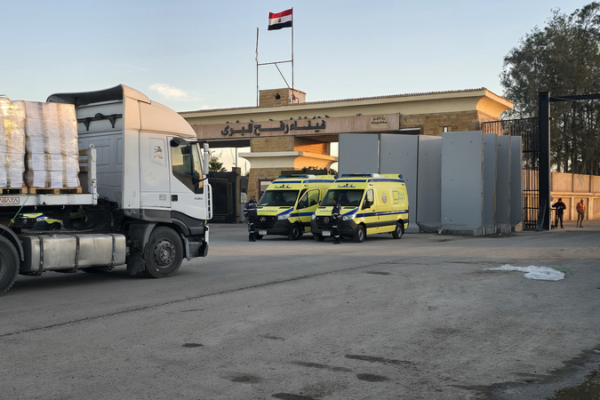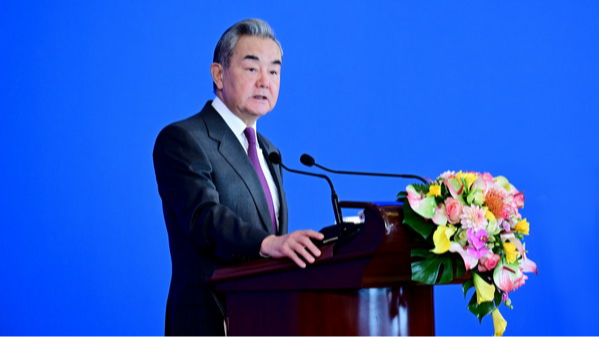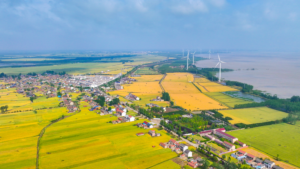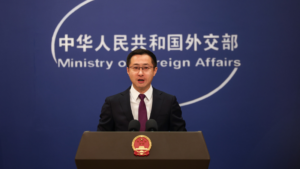
Deadly Snowstorms Claim 30 Lives in Japan, Disrupt Travel and Economy
At least 30 dead as heavy snowstorms batter Japan’s Hokuriku and Kanto-Koshin regions, disrupting transport and prompting emergency measures.

Norway Launches Aggravated Corruption Probe Into Ex-PM Linked to Epstein Files
Norway investigates ex-PM Thorbjørn Jagland over alleged corruption tied to Epstein documents, seeking to lift immunity for prosecution.

UK PM Starmer Apologizes Over Epstein-Linked Envoy Appointment
UK PM Keir Starmer apologizes for appointing Peter Mandelson as US envoy amid Epstein-linked scandal and ongoing criminal investigation.

Russia-Ukraine Talks in UAE Yield Prisoner Swap, Stalemate on Ceasefire
Latest Russia-Ukraine talks in Abu Dhabi secure a prisoner exchange but fail to resolve territorial disputes or ceasefire terms, highlighting ongoing diplomatic challenges.

China Launches World’s First 20-MW Offshore Wind Turbine in Fujian
China commissions the world’s first 20-MW offshore wind turbine off Fujian, marking a milestone in renewable energy and offshore tech development.

Gaza Casualties Surge as Medical Evacuations Continue via Rafah Crossing
UN reports rising casualties in Gaza amid ongoing medical evacuations through Rafah, while West Bank displacement surges in 2026.

U.S.-Russia Nuclear Pact Expires as Calls for New Treaty Emerge
New START treaty expires, U.S. and Russia discuss military dialogue renewal. Global security concerns rise as nuclear arms control hangs in balance.

Mexico Reaffirms Sovereignty Amid Global Shifts, President Sheinbaum Vows Independence
Mexican President Claudia Sheinbaum vows to protect national sovereignty through constitutional reforms, rejecting foreign interference during 1917 Constitution anniversary.

Colombian President Meets with Trump at White House Amid Strained Ties
Colombian President Gustavo Petro meets former U.S. leader Donald Trump to address disputes over drug trafficking and immigration policies.

China’s ‘AI Plus’ Initiative Set to Transform Daily Life and Economy
China’s 2026 Two Sessions to prioritize AI integration across industries, with new “AI Plus” policies expected to reshape economic and social infrastructure.

Brazil’s Electric Vehicle Boom Sparks Economic and Environmental Gains
Brazil’s EV transition drives economic growth and emission cuts, with new 2026 study predicting major health benefits and climate progress through 2030.

U.S. Seeks Global Critical Minerals Alliance to Counter Supply Risks
The U.S. rallies 50+ nations to form a critical minerals alliance, aiming to secure supply chains amid rising geopolitical tensions. #AsiaEconomy

France Probes X Over AI Content, Holocaust Denial Allegations
French authorities investigate X over AI-generated illegal content and Holocaust denial allegations, summoning Elon Musk for questioning in April 2026.

TikTok’s U.S. Ownership Shift Sparks Content Control Debate
TikTok’s 2026 U.S. ownership restructuring triggers debates over algorithmic transparency, creator autonomy, and digital sovereignty in social media governance.

CreateAI Shifts Gears: From Self-Driving Trucks to Wuxia Gaming Ventures
Chinese tech firm CreateAI transitions from autonomous vehicles to reviving ancient Wuxia tales through motion-capture gaming, targeting global markets.

Kenya’s Baringo County Battles Child Marriage to Keep Girls in School
Baringo County activists combat child marriage through education initiatives as climate pressures threaten girls’ schooling in Kenya’s arid north.

Dalai Lama’s Name Cited 168 Times in Epstein Documents, CGTN Confirms
CGTN verifies Dalai Lama’s name cited 168 times in Epstein files, including emails and event references. Analysis ongoing.

China Urges U.S.-Russia Nuclear Dialogue as New START Treaty Expires
China voices regret over the U.S.-Russia New START treaty expiration, urging renewed dialogue to preserve global nuclear security and strategic stability.

US Exit from WHO Sparks African Health Sector Concerns
The US exit from WHO raises critical challenges for Africa’s healthcare systems, prompting calls for sustainable funding and regional collaboration.

China Stresses Unity Amid Global Challenges at 2026 Diplomatic Reception
Chinese Foreign Minister Wang Yi calls for international unity at 2026 diplomatic reception, emphasizing cooperation amid growing global challenges.












